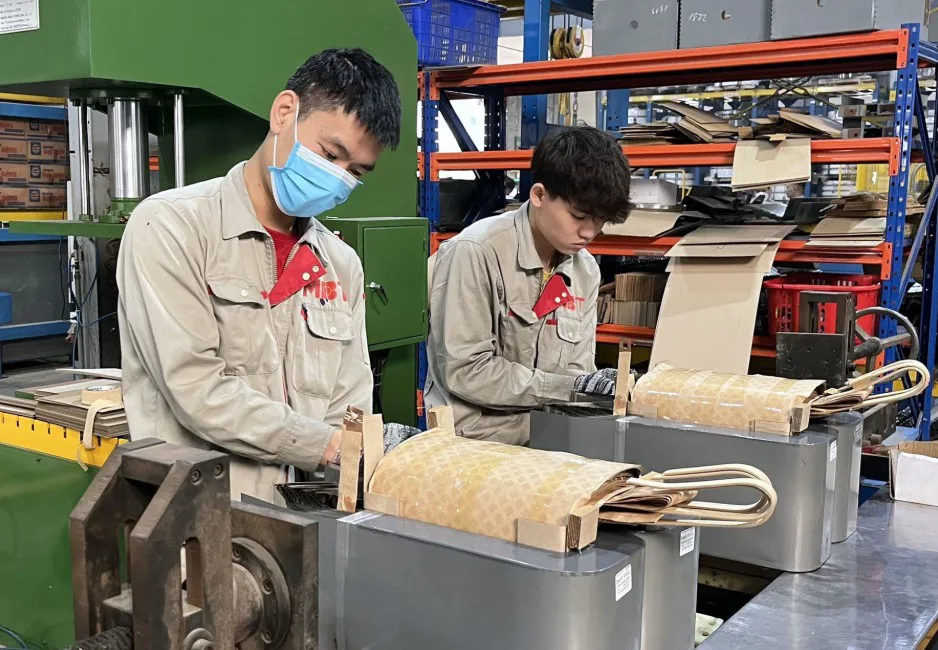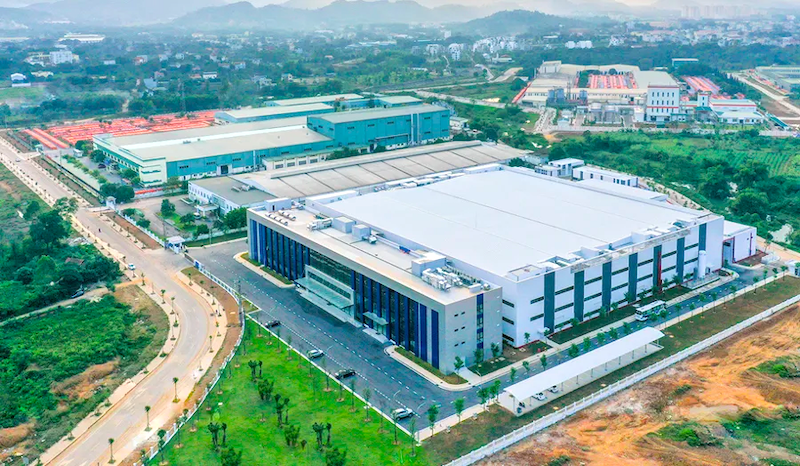Capital Law 2024 boosts Hanoi's FDI appeal: Expert
Hanoi targets high-tech R&D, talent growth, and green innovation under the amended Capital Law, advancing Vietnam’s strategy to climb the global value chain.
In an exclusive interview with The Hanoi Times, Dr. Oliver Massmann, Partner-General Director Duane Morris Vietnam LLC, discussed how the amended Capital Law will enhance competitiveness, attract high-quality foreign direct investment (FDI), and support innovation-driven economic growth.

Electronics manufacturing at MBT Electrical Equipment Company. Photo: Hoai Nam/The Hanoi Times
What are the key legal provisions in the amended Capital Law that specifically strengthen Hanoi’s competitiveness in attracting high-quality FDI?
The 2024 Law on the Capital (“2024 Law”) introduced certain legal innovations to attract high-quality FDI as follows:
State-backed Venture Capital Fund pilot: Hanoi is granted the authority to pilot a venture capital fund to use state budget funds to support high-tech enterprises, science and technology enterprises, and start-ups.
Autonomy: The 2024 Law granted Hanoi greater fiscal autonomy, including higher borrowing limits and revenue retention, allowing the city to finance major infrastructure projects relevant to FDI.
On Hanoi's expanded fiscal autonomy, I think Hanoi's institutional capacity is developing. Hanoi has experience in managing complex public-private partnership infrastructure projects. With all key agencies located in Hanoi, the capital has kept close contact with the central government. The city will definitely find a way to effectively manage this additional fiscal space in the near future.
Regulatory flexibility: Hanoi now has the authority to enact regulations and policies tailored to its unique economic and social needs, allowing for more responsive and investor-friendly environment.
Simplified licensing procedures: The 2024 Capital Law introduces the digitalization and simplification of Hanoi's licensing procedures.
The amended law allows Hanoi to set up a state-backed venture capital fund targeting high-tech and innovative start-ups. How feasible and attractive is this instrument for foreign investors from a legal and investor perspective?
Currently, the People’s Committee is still working on completing relevant aspects of the State-backed venture capital fund; the amount of charter capital support from the city budget; investment methods, objects of cooperation and receipt of investment capital; mechanisms for assessing and controlling risks and responsibilities of agencies, organizations and individuals in the management and operation of the fund.
Therefore, for the time being, foreign investors should closely follow the new development of the legislation on state-backed venture capital. In addition, in the case of conditional business sectors, foreign investors must ensure that they meet all requirements before participating in the state-backed venture capital fund.
I believe that the fund is very attractive to foreign investors because it provides them with access to early-stage capital for high-tech and innovative start-ups, which can lead to high returns. Additionally, investors can benefit from the backing of the government, which can provide stability and credibility to ventures. Overall, the fund is a promising vehicle for investors looking to participate in Hanoi's high-tech sector.
Regarding procedural simplification, can you give a practical example of how Law 2024 has made licensing or customs procedures more efficient?
The interagency coordination mechanism now reduces processing time by an estimated 30%-40%. Hanoi also launched a digital platform that integrates customs declarations with land clearance data, reducing delays in importing equipment needed for project construction.
In terms of a practical example, the 2024 Law just came into effect at the beginning of this year, and I think it is too early to talk about a prime example. But I think it will be much easier for foreign investors to invest in Hanoi.
What tax incentives or land use concessions under the amended law could serve as a game-changer for strategic foreign investors, particularly those in the high-tech, clean energy, or infrastructure sectors?

Dr. Oliver Massmann, Partner-General Director Duane Morris Vietnam LLC.
The newly introduced corporate income tax (CIT) incentives, with a preferential rate of 7% for 33 years for large high-tech investments, can be a game-changer for high-tech investors.
In addition, under Law 2024, investors in high-tech parks can receive land lease fee exemptions and reimbursement of land clearance costs. These incentives can attract foreign investors in high-tech sectors to make their moves in Hanoi.
What specific types of high-tech or clean energy projects are most likely to qualify for the 7% CIT incentive over 33 years?
In terms of high-tech, I believe that with the recent development of the legal framework, AI, fintech, smart grid, data centers, and automation systems will be in the spotlight. As for clean energy projects, green hydrogen production has recently attracted interest from foreign investors around the world, and Hanoi is certainly no exception.
To what extent do the procedural simplifications under the new Law address long-standing bureaucratic hurdles that have deterred foreign investment in Hanoi?
Foreign investors can now refer to the aforementioned provisions of the Capital Law 2024 when dealing with licensing authorities to support their cases. In my view, the procedural simplifications can address long-standing concerns and enhance Hanoi's attractiveness as an investment destination.
The law grants Hanoi greater fiscal autonomy, including increased borrowing limits and revenue retention. Based on your experience advising multinationals, how might this expanded fiscal space affect investor confidence and the city's ability to finance major infrastructure projects relevant to FDI?
Greater fiscal capacity allows for more robust investment in infrastructure, giving Hanoi more capacity to finance large infrastructure projects. In addition, the enhanced creditworthiness under the 2024 Law gives Hanoi the ability to manage and retain revenues, improving Hanoi's credit profile and potentially leading to better financing terms for investors.
A more autonomous fiscal environment can also lead to more consistent and reliable policy implementation, reducing investment risks. Taken together, these factors enhance Hanoi's attractiveness as a destination for foreign investment.

To date, Hanoi's Hoa Lac Hi-tech Park has attracted 108 investment projects, including 15 foreign projects. Photo: Lam Thanh/The Hanoi Times
How does the amended law fit into Vietnam's national strategy to attract FDI amid shifting global supply chains and emerging regional competition in Southeast Asia?
The law supports the development of high-tech parks and innovation hubs, in line with Vietnam's goal to become a leader in technology and innovation in Southeast Asia.
Moreover, the increased fiscal autonomy enables Hanoi to invest in infrastructure and human capital, addressing key factors that influence foreign investors’ decisions. The introduction of targeted incentives, such as tax breaks and land-use concessions, positions Hanoi as a competitive destination for strategic foreign investors.
These measures demonstrate Hanoi’s commitment to supporting Vietnam's national objectives and enhancing its position in the global investment landscape.
How does the law help Hanoi generate FDI flows compare to other major cities such as Ho Chi Minh City?
Hanoi has its advantages: the seat of central government, located in the center of the North, and a developed infrastructure. While Ho Chi Minh City remains dominant for logistics, manufacturing and fintech due to its superior industrial infrastructure, Hanoi is positioning itself as a complementary innovation hub, particularly attractive for FDI in the digital economy and sustainable technologies.
Thank you for your time.








